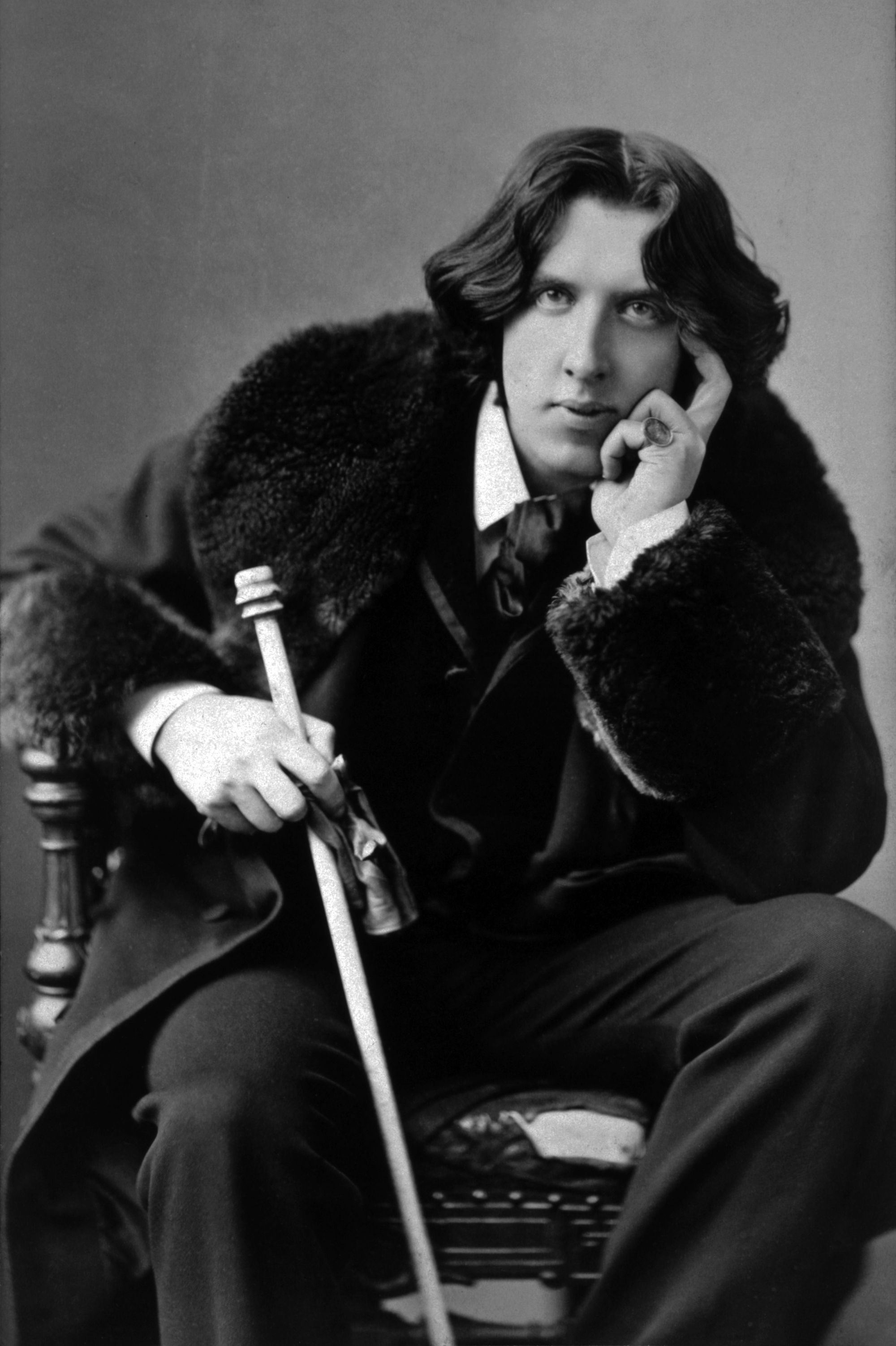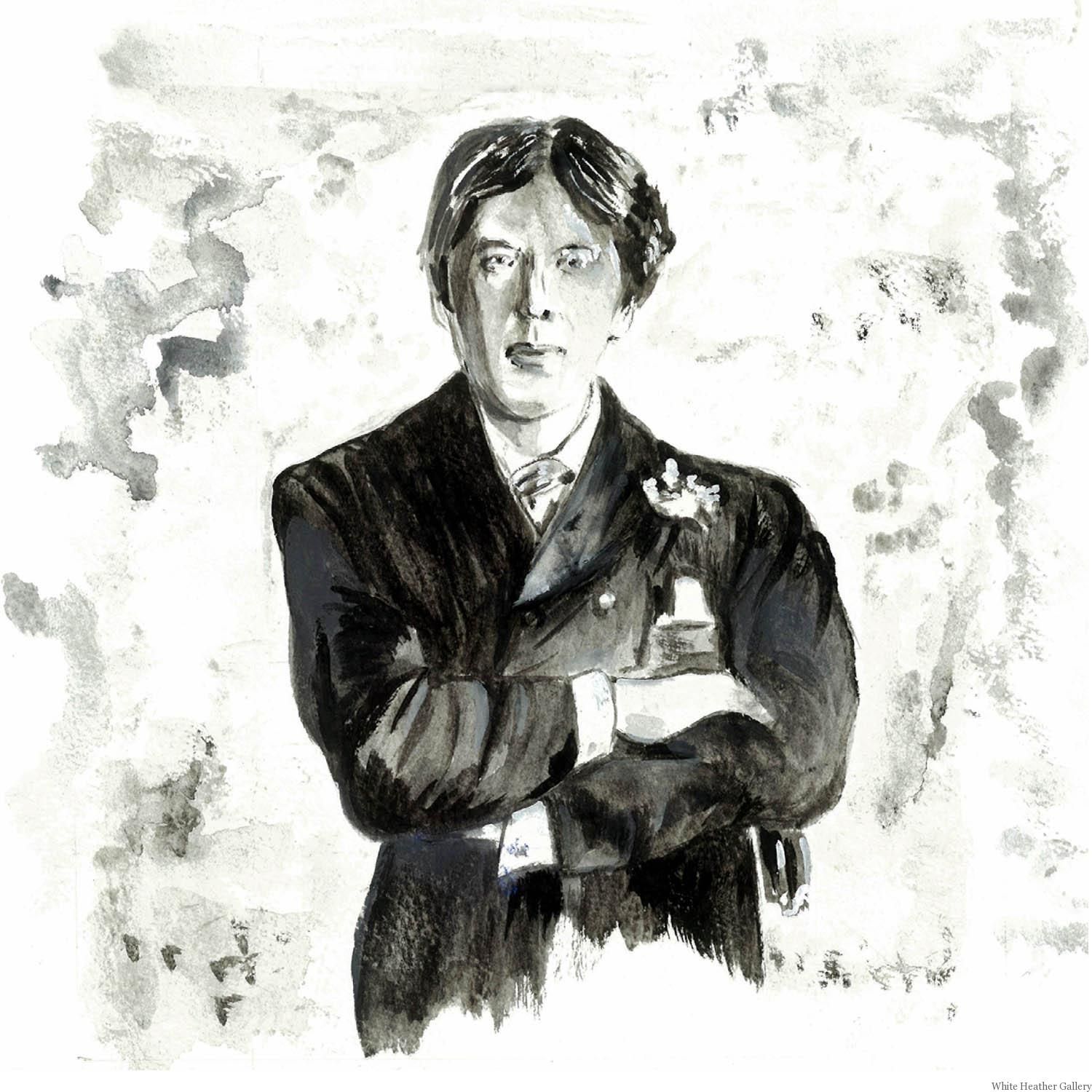Writing was inherently a self-reflective process for the Victorians, creating monstrosity and horror to reflect the society in which they lived. Oscar Wilde’s work, timeless and eternally relevant, serves as a testament to the close, if not symbiotic relationship between novel and author. Within the aesthetic universe of The Picture Of Dorian Gray, Wilde argues for the existence of art for art’s sake and for the beauty of language. Following the teachings of Walter Pater, the highly controversial novel preaches the importance of new sensations and multiplicity in the human experience. Yet, this hyper-idealized existence fails under the harsh reality of the Victorian era. Beneath beautiful prose and artistic language, Wilde’s masterpiece reveals themes of homosexuality and queer love, once again demonstrating the self-reflective nature of literature. Tragically, his words incriminate himself, causing Wilde to revise the novel and publish a new preface, reasoning that a diversity of opinions only strengthens his legacy. Most evident of Wilde’s personal struggle and his own life is Lord Henry, the sole surviving character of the novel. Through examination of Lord Henry’s character, The Picture of Dorian Gray not only tells a thoroughly entertaining tale, but serves as a mantra for homosexual love and the necessities of survival for years to come. Where others fail, Lord Henry succeeds, surviving the novel by always remaining multiple, changeable and never putting his worship into words.
The Great Sensualist
As opposed to Dorian, Lord Henry remains unscathed by the mortal consequences of statis and uniformity by living vicariously through others. Distance and objectivity are Henry’s great safeguards, protecting him from the uncontrollable emotion of human relationship. To this end, Henry collects people as his art, absorbing their best qualities in his ever-changing fascination. In this way, he creates an endless pool of sensation, choosing “my friends for their good looks, my acquaintances for their good characters, and my enemies for their good intellects,” showing how the diversity between people is the key to survival (Wilde 14). Among these qualities, youth is the most important, a finite source of prosperity and ability. Consequently, Dorian is Henry’s perfect subject, his innocence and naivety tools for Henry’s influence that allow him to relive his youth. When he first meets Dorian, Lord Henry is immediately enthralled by his appearance, remarking that “Yes, he was certainly wonderfully handsome, with his finely curved scarlet lips, his frank blue eyes, his crisp gold hair. There was something in his face that made one trust him at once. All the candor of youth was there, as well as all youth’s passionate purity” (17). Invigorated by his look, innocence, and “passionate purity”, Lord Henry becomes young again with Dorian and survives the novel by always remaining changeable.

Stay The Observer
Lord Henry never puts his worship into words by maintaining a scientific, experimental outlook and by forever staying an observer. While Oscar Wilde irreversibly changed his career with the publication of The Picture of Dorian Gray, Lord Henry refrains from expressing his feelings in the traditional manner. He dances around the homosexual attraction, using words like “intrigue” , “fascinating” , and “curious” to describe the way he feels, reflecting Wilde’s own secretive relationships. Most importantly, Henry hides behind the veil of the scientific by “ vivisecting himself, as he had ended by vivisecting others. Human life --- that appeared to him the one thing worth investigating,” shrouding his true emotions (52). This vivid, grotesque picture of human vivisection demonstrates the true extent of Henry’s commitment to the experimental and pure aesthetics, no matter the cost. While Henry’s influence corrupts Dorian, leading to the deaths of Basil Hayward and Sybil Vane, he himself remains unscathed and uninvolved, preaching that “One should absorb the colour of life, but one should never remember its details. Details are always vulgar” (85). By never putting his worship into words, Lord Henry remains in control, resisting the pitfalls of intimacy and ultimately, surviving the novel.
Impression & Temptation
Lord Henry also outlasts the novel by constantly courting new impressions and yielding to temptation. Following from Walter Pater’s conclusion to the renaissance, success in Oscar Wilde’s aesthetic universe is to maintain the constant, gem-like flame of curiosity and to make the most of a limited life-span. Lord Henry performs this narrative throughout the story, encouraging Dorian to fulfill the most vivid of experiences, including murder, in search of meaning. In his own words, “The only way to get rid of a temptation is to yield to it. Resist it, and your soul grows sick with longing for the things it has forbidden to itself, with desire for what it's monstrous laws have made monstrous and unlawful” (19). Beneath secretive language and clever disguise, Henry is talking about the sexual attraction and specifically, the “temptation” of homosexual love as the greatest sensation of all. To him, the search of constant changeability is the only way to maintain the vitality of life, exemplified in his defining mantra of “Nothing can cure the soul but the senses, just as nothing can cure the senses but the soul,” and his pursuit of the sublime (21). By yielding to the intrinsic appetite of the “senses'', Henry cures the “soul”, remaining alive, both literally and figuratively, throughout the novel.

Conclusion: An Inevitable Social Death
The Picture of Dorian Gray is a novel of many contradictions, layers, and intentions: from a meaningless piece of art to a story of suppressed homosexual love. Published in an era of scrutiny, close-mindedness, and pretension, Oscar Wilde mocks the absurdity of modern society. His monsters, fabricated with language and verbal, transcend the literary realm, revealing an all-true hypocrisy about what it means to love. Wilde, at the height of his career, defied conformity no matter the cost, and losing everything in the process. Written into the novel is a reflection of himself in the form of Lord Henry. Paralleling his own life, Henry cannot love in the traditional sense; instead hiding his passion behind science, curiosity, and others. Henry had to survive in this way to preserve Wilde’s own safety, as a vehicle for plausible deniability. Yet, Wilde’s message extends beyond to the present day, where we too must always be changing to avoid true categorization, where the consequences of revealing one’s true self is an inevitable social death. With limited time and flickering thoughts, one must learn to survive an unyielding and unkind world, drawing from the legacy of Oscar Wilde and Lord Henry Wotton.
